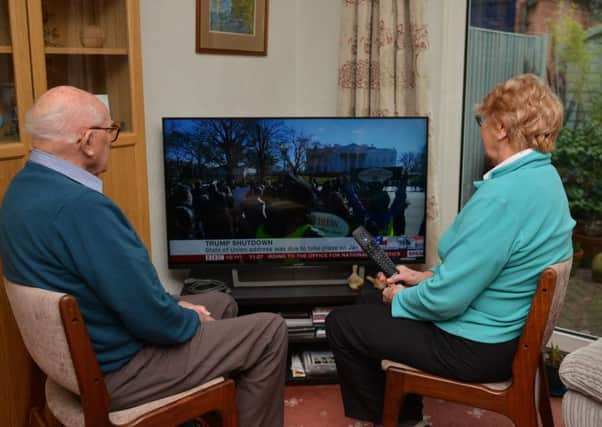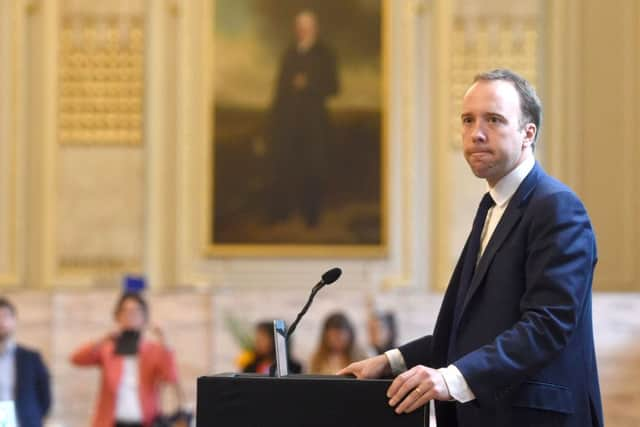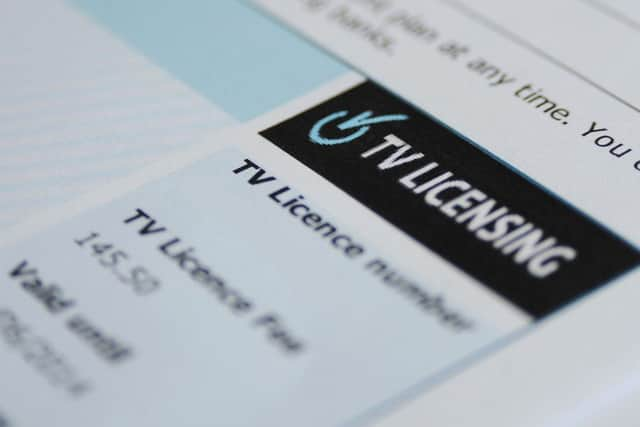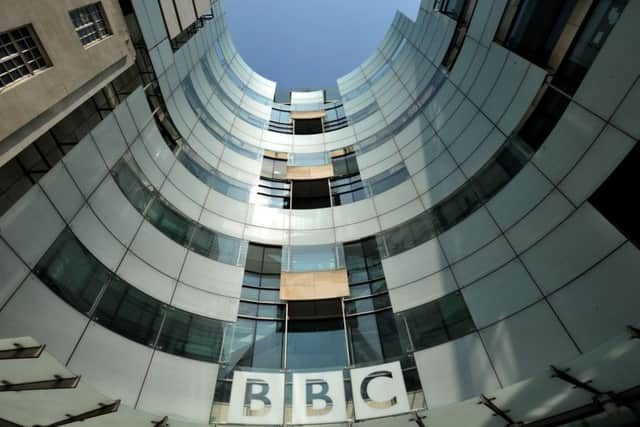Why the BBC’s job is not to provide free TV licences and social care for over-75s – Jayne Dowle


There have also been serious concerns raised about how families can sensibly plan for and tackle the care and wellbeing of elderly relatives. And still there’s no sign of the promised Green Paper on social care from Health Secretary Matt Hancock. We can only assume that his latest excuse is that he is hoping to become the next leader of the Conservative Party.
But when the BBC announces that it is going to abolish free television licences for over-75s, there is public uproar and condemnation, not least from Hancock who says that the BBC should reverse the decision and cut costs elsewhere.
Advertisement
Hide AdAdvertisement
Hide AdRivals Michael Gove and Esther McVey have gone further, promising to decriminalise non-payment of the £154.50 annual fee.


Thousands are convicted for non-payment every year, with some offenders even sent to prison for failing to pay the £1,000 fines.
Ms McVey became the first Tory leadership candidate to publicly back decriminalising the offence. “You shouldn’t need the weight of the criminal law to force people to pay the licence fee – especially those the BBC had promised to pay it for in the first place,” she told reporters.
The BBC’s decision is likely to affect almost four million pensioners. It is believed that those over-75s on the very lowest incomes, who receive Pension Credit, will still be eligible to watch television for free.
Advertisement
Hide AdAdvertisement
Hide AdHowever, it is also the case that many of those just above the Pension Credit threshold are hardly living the good life on the spoils of meagre state and occupational provision.


And it is not inconceivable that many may find the licence a stretch, forget to pay or become alarmed by a draconian and unforgiving regime which never hesitates to bring in the bailiffs and court action if payments are missed. Naturally, the TV Licensing Authority will do all in its not inconsiderable powers to get you to pay online, not often the best option for those without wifi or keyboard skills.
Quite rightly, no-one wants to see some of society’s most vulnerable members criminalised for being confused.
Within 24 hours of the about-turn on the policy – introduced by the then Labour Chancellor Gordon Brown in 1999 – Age UK had amassed almost a quarter of a million signatures demanding that the BBC reverse its decision.
Advertisement
Hide AdAdvertisement
Hide AdIf this is what it takes to get the plight of millions of older people on the public agenda, bring it on.


It’s not just about the TV licence, you see. It’s about largely unaccountable public organisations taking decisions – based entirely on financial calculations – which have life-changing repercussions for those on the receiving end. And the controversy is not helped by the fact that whilst individual politicians are free to join the anti-brigade, the Government is effectively powerless to do anything about it.
The decision is technically a breach of the 2017 Tory election manifesto, but here’s the rub. Another former Chancellor, this time Conservative George Osborne, had already decided that the subsidy would be phased out by 2020, leaving the BBC with a £745m annual bill if it maintains free licences for all over-75s. This was reiterated when the BBC agreed its new charter with the Government, writing in stone its future responsibility for delivery of free licences.
There has been a kind of uneasy truce ever since. However, now the BBC, which has faced a recent backlash over the inflated salaries it pays top presenters such as Gary Lineker (reported to be £1.75m), and in the face of competitors such as streaming service Netflix, is juggling its priorities.
Advertisement
Hide AdAdvertisement
Hide AdAs the nation’s public service broadcaster, it is not exactly covering itself in glory. Understandably, Tory leadership candidates are capitalising on the furore. However, they should all be aware that the moral high ground can be a rocky and precarious place.
Promise too much today and then find out that there is no means of paying for it tomorrow is a recipe for political disappointment and potential disaster.
And as Labour deputy leader Tom Watson pointed out in the House of Commons, Conservative politicians squirming out of past collective government decisions is short-sighted at best. He said: “Public broadcasters should never be responsible for social policy.”
It begs this follow-up question – who is? I think we all know the answer to that one. When the noise has abated, it is here where Matt Hancock and the rest of the leadership hopefuls might like to focus their political commitment and righteous indignation.